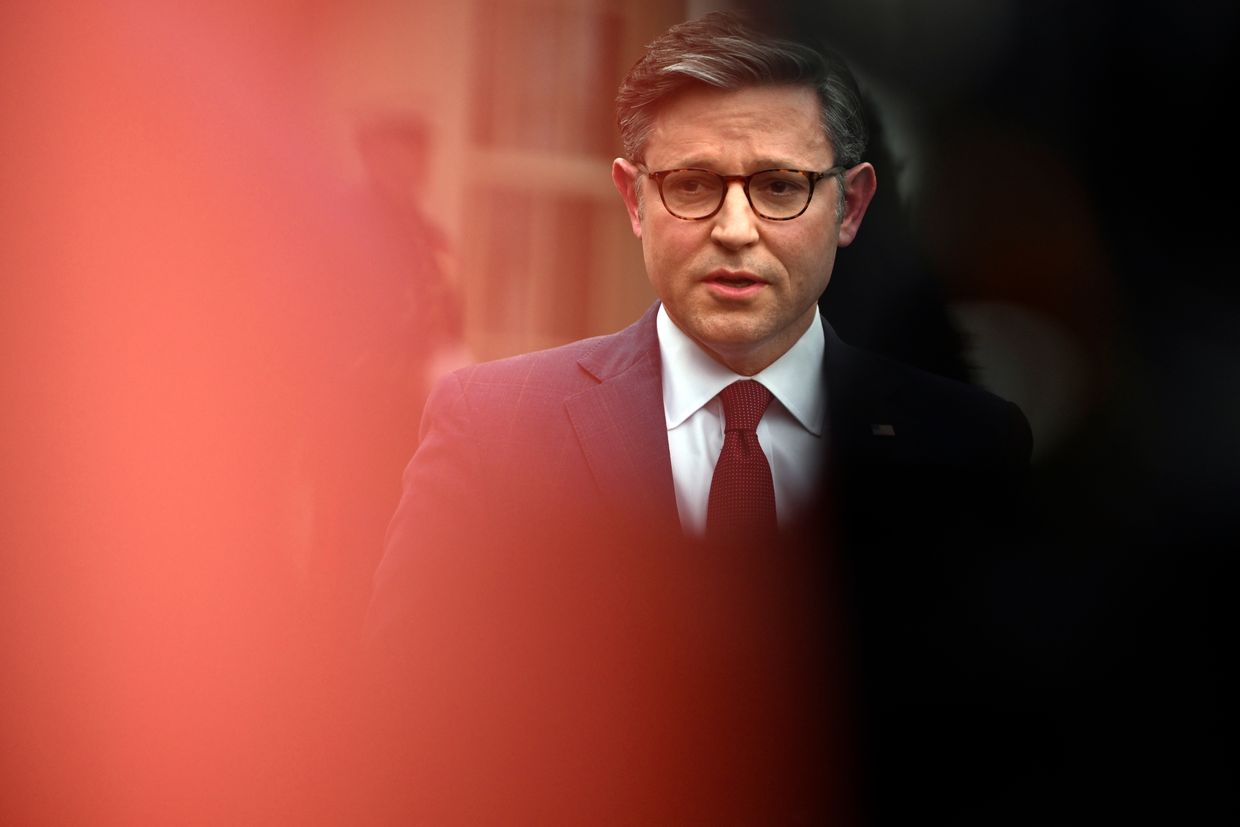Speaker Johnson: US House to vote on $61 billion Ukraine aid bill on April 20

U.S. House Speaker Mike Johnson said he is moving forward with his plan to hold a vote on a series of foreign aid bills for Israel, Ukraine, and Taiwan despite pressure from Republican hardliners, CNN reported on April 17.
Johnson told U.S. lawmakers that the vote will be held in the evening of April 20.
U.S. assistance for Ukraine has been effectively blocked for months, leading to the rapidly deteriorating situation on the battlefield.
While the Senate passed a $95 billion foreign aid bill for Ukraine, Israel, and Taiwan in February, Johnson previously said he instead plans to hold a vote on four separate bills in his chamber this week.
This has sparked backlash from the right flank of the Republican Party, with lawmaker Marjorie Taylor Greene threatening to trigger a motion to remove Johnson from his position.
Thomas Massie, another Republican Congressman, said he would support the speaker's removal if Greene activates the resolution.
Other Republicans have insisted that any foreign aid bill must include measures strengthening the security at the U.S.-Mexican border. This means that Johnson will likely need Democratic votes to pass the bills.
The content of the Ukraine aid bill has been published on the House of Representatives website. Similarly to the Senate's bill, it allocates around $61 billion in assistance for Kyiv.
Of this sum, $28 billion is allocated to defense-related "operation and maintenance" expenses for Kyiv, including $13.8 billion for new contracts under the Ukraine Security Assistance Initiative and $13.4 billion for replacement or repair of sent or used equipment.
An additional sum of roughly $1.6 billion is to remain available for Ukraine or other partners until September 2025.
The bill also requires the Biden administration to deliver long-range ATACMS missiles when practicable "after the date of enactment of this Act."
"If the President determines that executing the transfer of long-range Army Tactical Missile Systems to the Government of Ukraine pursuant to sub-section (a) would be detrimental to the national security interests of the United States, the President may withhold such transfer," the document adds.
The text further stipulates that no later than 60 days after the bill comes into force, Washington must conclude an agreement with Kyiv on the repayment of the economic portion of the aid. The bill calls for economic assistance in the amount of $7.9 billion available until September 2025.
At the same time, the president may, with Congress's approval, write off 50% of Ukraine's debt after Nov. 15, 2024, and all the remaining debt after Jan. 1, 2026. The U.S. is heading to a presidential election this November, with Donald Trump, who himself suggested treating assistance to Kyiv as a loan, being the likely Republican nominee.
The bill further requires that no later than 45 days after enactment, the secretary of state and the defense secretary will submit to Congressional committees a multi-year strategy of support for Ukraine, including "specific and achievable objectives" and "define and prioritize United States national security interests."
This strategy is to include an estimate on a fiscal year-by-fiscal year basis on the required resources to achieve these objectives. Further requirements include a report on all weapons and related funding provided to Ukraine since February 2022 and a report on the oversight of the supplies.
The assistance package for Israel allocates $26.4 billion, and the Indo-Pacific bill calls for $8.12 billion.
If the House passes the aid in this form, the bills will have to travel back to the Senate for an additional vote before being sent to U.S. President Joe Biden for signature.
The White House has already indicated it is open to considering separate bills as long as they include assistance for Ukraine.
"The important thing is that our allies like Ukraine and Israel who are under the gun, literally under the gun, get the security assistance they need as soon as possible. So we want them to move this week," U.S. National Security Council spokesperson John Kirby told reporters on April 16.
"It does appear at first blush that the speaker's proposal will, in fact, help us get aid to Ukraine, aid to Israel, and needed resources to the Indo-Pacific for a wide range of contingencies there. At first blush it looks like that, we just want to get more details."













